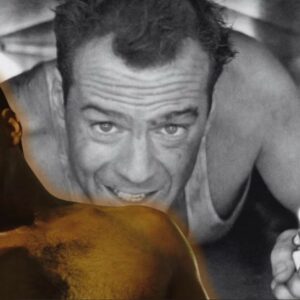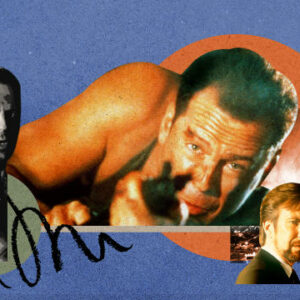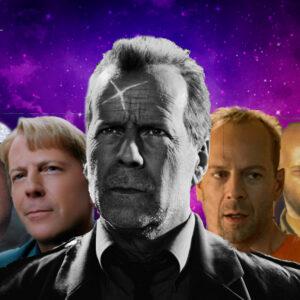Daniel Radcliffe, best known for his iconic role as Harry Potter, has transcended his early fame to become a significant figure in modern cinema. From his diverse range of roles to his choice of unconventional projects, Radcliffe has influenced contemporary film trends and inspired a new generation of actors. This article delves into Radcliffe’s impact on modern cinema and the trends he has helped shape.
Early Stardom and Beyond
Daniel Radcliffe’s journey began with the Harry Potter series, a cultural phenomenon that catapulted him into international stardom. The franchise’s success not only defined Radcliffe’s early career but also set a high bar for child actors transitioning to adult roles. His portrayal of the young wizard was both critically acclaimed and commercially successful, establishing him as a household name.
As Radcliffe matured, he made a conscious effort to distance himself from typecasting. His choice of roles in films like The Woman in Black (2012) and Swiss Army Man (2016) showcased his versatility and willingness to embrace darker and more unconventional characters. This shift marked a pivotal moment in his career, influencing how audiences and critics perceive actors who break away from their signature roles.
Redefining Typecasting
Radcliffe’s career choices have played a crucial role in challenging traditional typecasting in Hollywood. By taking on a variety of roles, from a hapless corpse in Swiss Army Man to a radical journalist in The True History of the Kelly Gang (2019), Radcliffe has demonstrated that actors are not confined to a single image. His willingness to explore different genres and characters encourages actors to embrace diverse roles, thereby reshaping expectations in the industry.
This approach can be seen as part of a broader trend in modern cinema where actors are increasingly valued for their range and adaptability. Radcliffe’s career trajectory has contributed to this shift, encouraging a new generation of actors to seek out roles that challenge their established personas. His willingness to take risks and push boundaries has paved the way for other actors to do the same, fostering a more dynamic and varied film landscape.
Exploring Theatrical Ventures
Radcliffe’s ventures into theater further cement his influence on modern cinema. His performances on stage, including his role in the Broadway revival of How to Succeed in Business Without Really Trying (2011) and his portrayal of a troubled young man in Equus (2007), have showcased his depth as an actor. These theatrical experiences have not only broadened his skill set but also highlighted the importance of stage acting in the overall development of a film actor.
Theater offers actors a different kind of challenge compared to film. The immediacy of live performance requires a unique set of skills, including the ability to adapt to real-time audience reactions and maintain consistency across multiple performances. Radcliffe’s success in theater has demonstrated his versatility and commitment to his craft, further enhancing his reputation as a multifaceted actor.
Embracing Unconventional Roles
One of the most notable aspects of Radcliffe’s career is his embrace of unconventional and often quirky roles. His performances in films such as Swiss Army Man, where he plays a corpse with unique abilities, and Now You See Me 2 (2016), where he portrays a tech-savvy villain, highlight his willingness to explore offbeat and imaginative characters. This approach not only sets Radcliffe apart from his peers but also contributes to a broader trend in modern cinema where unconventional storytelling and unique characterizations are increasingly celebrated.
Radcliffe’s willingness to take on such roles can be seen as part of a larger movement in film that values originality and creativity. As the industry evolves, there is a growing demand for stories and characters that defy traditional norms and push the boundaries of conventional filmmaking. Radcliffe’s career choices reflect this shift, showcasing how actors can influence and drive new trends in cinema through their willingness to take risks and challenge expectations.
Collaborations with Independent Filmmakers
Radcliffe’s collaborations with independent filmmakers further underscore his influence on modern cinema. By working with directors and producers from the indie film world, Radcliffe has contributed to the rise of independent cinema and the promotion of innovative storytelling. Films such as The Jungle (2017) and Guns Akimbo (2019) highlight his commitment to exploring diverse and unconventional projects, often outside the mainstream studio system.
Independent cinema has long been a breeding ground for new and experimental ideas. Radcliffe’s involvement in this space reflects his dedication to supporting and promoting innovative filmmaking. His collaborations with indie filmmakers not only showcase his versatility as an actor but also contribute to the ongoing evolution of modern cinema. By championing independent projects, Radcliffe helps to broaden the scope of film narratives and encourage the exploration of new creative possibilities.
Impact on Modern Film Trends
Radcliffe’s career has had a significant impact on modern film trends. His choice of roles and projects reflects broader shifts in the industry, including a growing emphasis on diversity, originality, and creativity. By embracing unconventional characters and working with independent filmmakers, Radcliffe has contributed to a more dynamic and varied film landscape.
One notable trend in contemporary cinema is the increasing appreciation for unique and diverse storytelling. Films that challenge traditional narratives and offer fresh perspectives are becoming more prominent, and Radcliffe’s career choices align with this shift. His willingness to take on unconventional roles and explore new creative avenues has helped to shape this trend, influencing both the types of stories being told and the way they are presented.
Inspiring a New Generation of Actors
Radcliffe’s career serves as an inspiration for a new generation of actors. His success in transitioning from a child star to a versatile adult actor demonstrates the potential for growth and reinvention within the industry. By taking on a wide range of roles and embracing unconventional projects, Radcliffe has shown that it is possible to evolve as an actor and continue to make a significant impact on cinema throughout one’s career.
For aspiring actors, Radcliffe’s career offers valuable lessons in versatility, risk-taking, and commitment to one’s craft. His willingness to explore different genres and characters highlights the importance of embracing opportunities for growth and development. By following Radcliffe’s example, new actors can learn to navigate the challenges of the industry and build careers that are both fulfilling and influential.
Conclusion
Daniel Radcliffe’s journey from a child star in the Harry Potter series to a prominent figure in modern cinema is a testament to his influence on the evolution of the film industry. His career choices, including his embrace of unconventional roles, involvement in independent cinema, and ventures into theater, have reshaped expectations and contributed to the emergence of new film trends. By challenging traditional typecasting and supporting innovative storytelling, Radcliffe has played a significant role in shaping the future of cinema.
As the industry continues to evolve, Radcliffe’s impact will likely be felt for years to come. His career serves as a model for aspiring actors and a reflection of the ongoing changes in modern cinema. Through his diverse roles and commitment to creative exploration, Daniel Radcliffe has demonstrated that the possibilities for actors are limitless, paving the way for new and exciting developments in the world of film.





